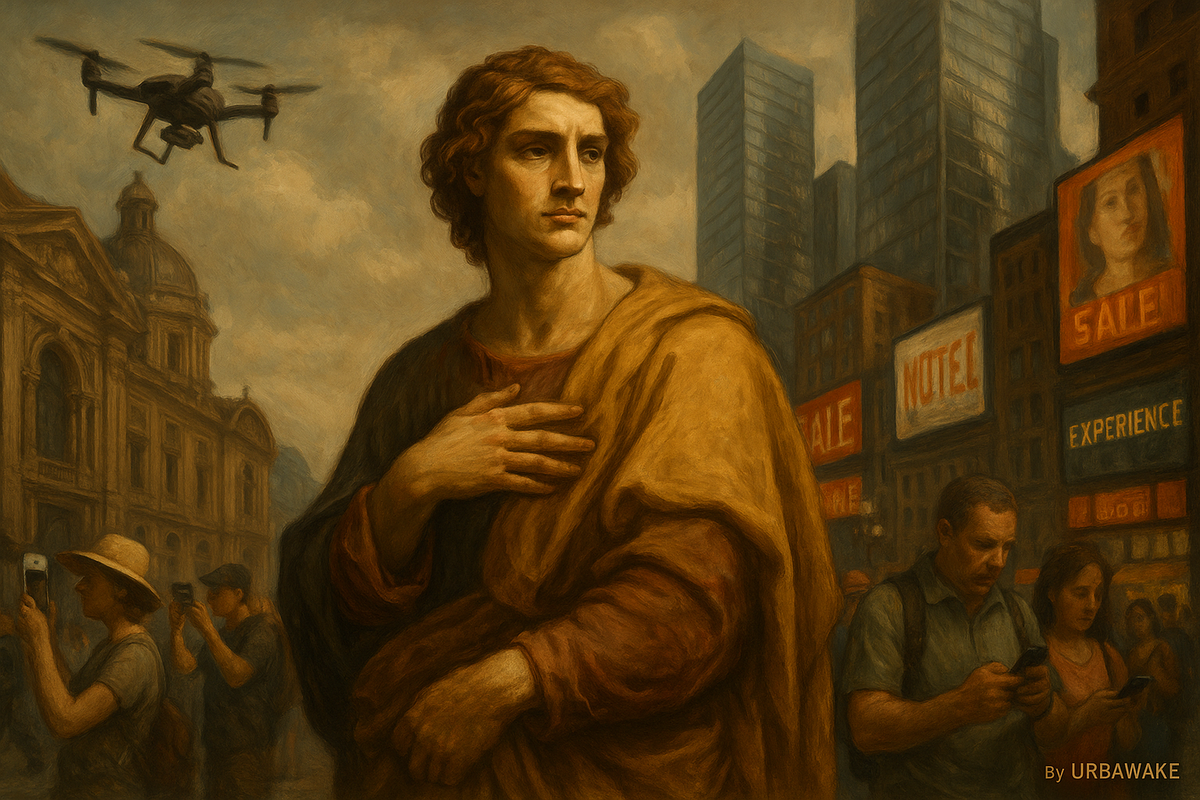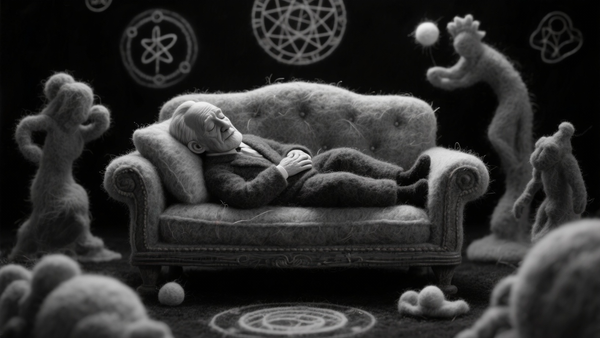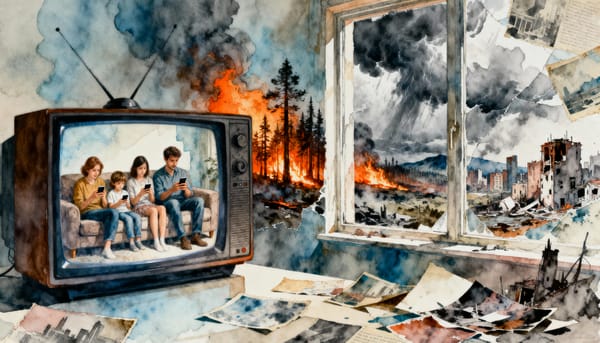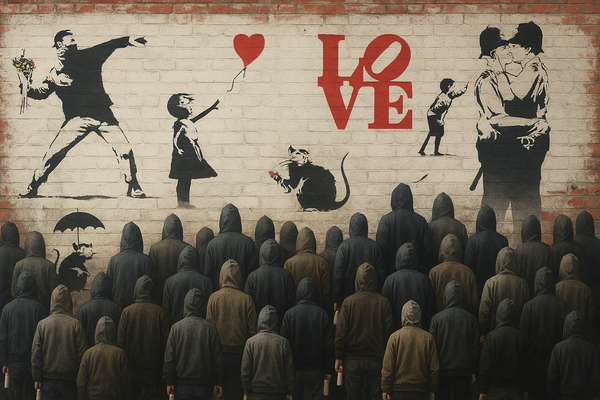🏙️ Barcelona ya no nos pertenece: gentrificación, turismo y el precio de vivir en una ciudad neoliberal
Barcelona ya no es una ciudad para vivirla, sino para consumirla. El turismo no es la causa, es el síntoma de un modelo neoliberal que expulsa a su propia gente en nombre del crecimiento. Este artículo es un grito contra la ciudad escaparate y en defensa del derecho a quedarse.


Este domingo 15 de junio, miles de personas saldrán a la calle en distintas ciudades europeas.
No por nostalgia. No por romanticismo.
Sino porque ya no pueden vivir en su barrio. Porque han sido expulsadas, invisibilizadas o convertidas en figurantes de un decorado diseñado para otros.
El modelo Barcelona: escaparate neoliberal
Durante años, Barcelona fue vendida como la ciudad modelo: moderna, abierta, innovadora. Un escaparate de la globalización mediterránea.
Pero ese relato ocultaba algo esencial: el éxito urbanístico y turístico se construyó sobre el desplazamiento constante de su propia gente.
Desde las Olimpiadas del 92, cada gran evento o transformación urbana ha tenido un patrón común:
- Incremento del valor del suelo
- Llegada de capital inversor
- Desplazamiento de las clases populares
Los que hoy se autodenominan “clase media” —hijos de obreros con carrera y sueldo precario— siguen siendo expulsados igual que sus padres, solo que ahora ya no tienen ni derecho al pataleo: les hicieron creer que la ciudad también era suya.
La turistificación como síntoma (y no como causa)
El turismo no es el problema.
Es el síntoma más visible de una ciudad que se rinde al capital rápido.
Mientras se promociona Barcelona para millones de visitantes cada año, esto es lo que ocurre dentro:
💸 El 85 % del salario de un joven se va en el alquiler
🏘️ Miles de viviendas están vacías o convertidas en pisos turísticos
🏦 Fondos buitre compran edificios enteros
👻 Barrios como el Gòtic o Gràcia se llenan de negocios “cool” pero sin vecinos
🍽️ La vida cotidiana se encarece, se homogeneiza, se vacía
La ciudad se convierte en una experiencia estética para los que vienen y en un infierno financiero para los que se quedan.
¿Quién se beneficia de esta ciudad?
Plataformas digitales:
- Airbnb, Booking y similares, que transforman viviendas en activos financieros.
Fondos de inversión:
- Blackstone, Cerberus, Azora: compran inmuebles, expulsan inquilinos, multiplican rendimientos.
Industria turística:
- Cruceros, aerolíneas low-cost, hoteleros: ingresos rápidos, impactos profundos.
Instituciones públicas:
- Ayuntamientos y gobiernos que priorizan los ingresos fiscales y el relato del “éxito global”.
Élites culturales y mediáticas:
- Que siguen vendiendo la “Barcelona brand” mientras se esconden detrás de discursos sobre innovación, sostenibilidad y creatividad.
¿Y quién pierde?
Tú.
Tus padres.
Tus vecinos.
Los jóvenes que no pueden emanciparse.
Los ancianos que ya no reconocen su calle.
Los trabajadores que sostienen el turismo pero no pueden pagarse un hogar.
Esto no es solo gentrificación. Es expulsión programada.
Una ciudad donde los que menos tienen siempre son los primeros en irse.
¿Y la inmigración? La pieza invisible (y necesaria) del engranaje
Otro elemento clave —y raramente abordado con honestidad— es el papel de la inmigración dentro de este modelo de ciudad.
La llegada constante de personas migrantes no es un “problema” en sí, sino una consecuencia lógica de un sistema que necesita mano de obra barata, desprotegida y reemplazable.
Son quienes llenan el vacío que deja la bajísima natalidad.
Quienes sostienen sectores enteros de la economía que la mayoría no quiere tocar: limpieza, cuidados, construcción, reparto.
Y aun así, se les criminaliza o se les convierte en chivos expiatorios del malestar social.
Pero la culpa no es de quien viene a ganarse la vida.
La culpa es de quien se lucra sistemáticamente de su precariedad.
La culpa es del empresario que:
- paga lo mínimo posible y exige lo máximo;
- que externaliza, subcontrata y falsifica contratos;
- que defiende la libertad de mercado solo cuando le beneficia, mientras repite que el Estado es un estorbo, inútil o innecesario.
Esos mismos empresarios que luego lloran por “falta de productividad”, mientras exprimen a quien no tiene papeles, voz ni derechos.
No es inevitable. Es una decisión.
La palabra “gentrificación” suena técnica. Casi neutral. Como si no hubiera alternativa.
Pero esto es una decisión política sostenida en el tiempo:
- Pactos con fondos de inversión
- Reformas urbanas que suben el precio del suelo
- Modelos fiscales que premian al visitante sobre el residente
- Campañas que convierten el centro en un parque temático
No se trata de modernizar.
No se trata de embellecer.
Se trata de quién tiene derecho a quedarse. Y quién es prescindible.
✊ Este domingo no se protesta solo contra el turismo
Se protesta contra el modelo de ciudad como negocio.
Contra los que dicen que el crecimiento lo justifica todo.
Contra los que con una mano te dan cultura y con la otra te quitan el hogar.
Se protesta por el derecho a vivir donde naciste.
Por el derecho a tener raíces.
A tener comunidad.
A tener futuro.
Si este contenido te ha hecho pensar, compártelo.
No hay algoritmo mejor que una recomendación sincera.
URBAWAKE no se sostiene con anuncios ni patrocinadores. Lo hace gracias a personas que creen que otra forma de contar —y de entender— el mundo es posible.
🔁 Reenvía este correo.
📢 Cita el artículo.
💬 O simplemente, habla de esto con alguien.
A veces, la chispa que necesitamos no viene de una verdad nueva, sino de una conversación pendiente.
(Publicado por URBAWAKE – urbawake.com)





